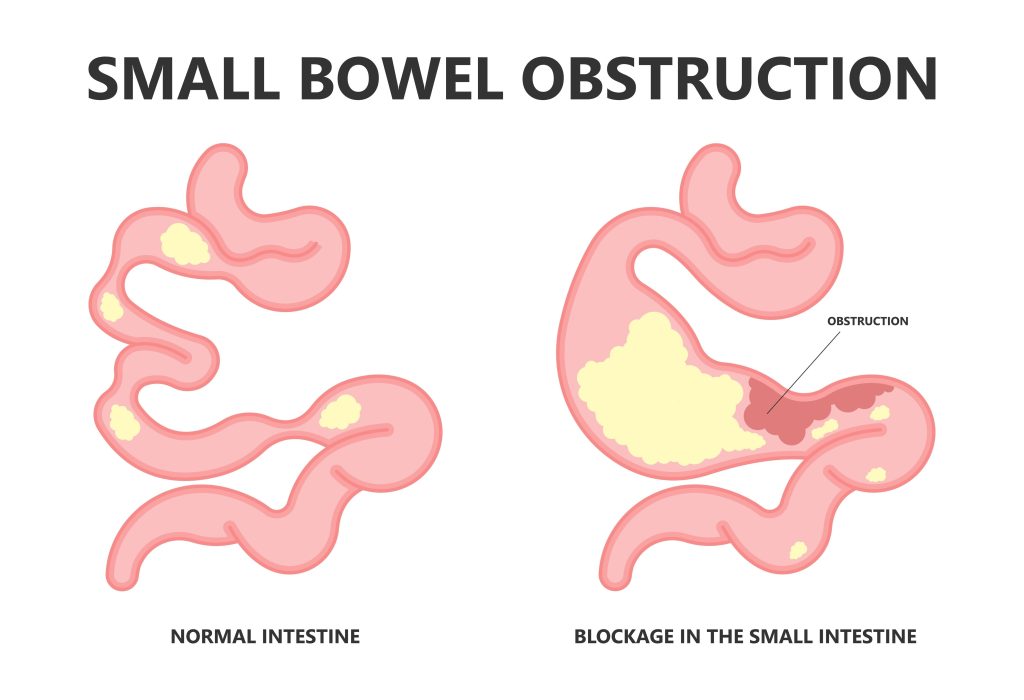Mark Kopec Now
Bowel Obstruction
Understanding Your Rights with Baltimore Bowel Obstruction Lawyer Mark Kopec
Anatomy and Function of the Bowel
The bowel, or intestines, is a long, muscular tube that runs through your abdomen. If you have been injured by a bowel obstruction, then you may have a medical malpractice claim and need Baltimore bowel obstruction lawyer Mark Kopec.
The bowel is generally divided into two main sections: the small intestine and the large intestine.
- Small intestine: This is the longest part of the bowel. It’s where most of your food is digested and also nutrients are absorbed into your bloodstream.
- Large intestine: Also known as the colon, this is shorter than the small intestine. Its main job is to absorb water from the remaining undigested food, forming solid waste (feces).

What Causes Bowel Obstructions?
A bowel obstruction occurs when something blocks the passage of food and fluids through your intestines. This can be caused by a variety of factors, including:
- Hernias: A hernia occurs when a part of your intestine bulges through a weak spot in your abdominal wall.
- Adhesions: These are fibrous bands that can form in your abdomen after surgery or injury. They can cause the intestines to become twisted or stuck together.
- Intussusception: This is a condition in which part of the intestine slides into an adjacent part.
- Volvulus: This is a condition in which the intestine twists around itself.
- Tumors: Both benign and malignant tumors can block the intestines.
- Foreign objects: Sometimes, foreign objects like swallowed toys or coins can cause a blockage.
- Fecal impaction: This occurs when hardened stool becomes stuck in the rectum.
- Inflammatory bowel disease (IBD): Conditions like Crohn’s disease and ulcerative colitis can also lead to bowel obstructions.
Symptoms of Bowel Obstruction
The symptoms of bowel obstruction can vary depending on the severity and location of the blockage. However, common symptoms include:
- Abdominal pain or cramping
- Nausea and vomiting
- Bloating and distention
- Constipation or diarrhea
- Blood in your stool
- Fever
Seeking Medical Attention
If you experience any of the symptoms of bowel obstruction, it’s important to seek medical attention immediately. Delaying treatment can lead to serious complications, such as intestinal perforation or sepsis.
Diagnosis of Bowel Obstruction
Your doctor will likely perform a physical examination to assess your abdomen and listen for bowel sounds. They may also order one or more of the following tests:
- Blood Tests: Blood tests can help check for signs of inflammation or infection.
- Imaging tests: X-rays, CT Scans, and MRIs can help visualize the intestines and identify the cause of the blockage.
- Endoscopy: An endoscopy is a procedure in which a thin, flexible tube with a camera is inserted into your body to examine the inside of your intestines.
Treatment for Bowel Obstruction
The treatment for bowel obstruction will depend on the underlying cause and the severity of your symptoms. In some cases, the blockage may resolve on its own with conservative measures such as fluids and medications. However, more severe cases may require surgery to remove the obstruction or repair the damaged intestine.
Prognosis for Bowel Obstruction
The prognosis for bowel obstruction depends on several factors, including the underlying cause, the severity of the condition, and the timeliness of treatment. With prompt medical attention, most people with bowel obstruction can make a full recovery. However, complications such as intestinal perforation or sepsis can be life-threatening.
Medical Malpractice Claims with Baltimore Bowel Obstruction Lawyer Mark Kopec
If you believe that your bowel obstruction was caused by medical negligence, you may be able to file a medical malpractice claim. Some examples of medical malpractice related to bowel obstruction include:
- Misdiagnosis: If your doctor failed to diagnose your bowel obstruction in a timely manner, leading to complications, you may have a claim.
- Incorrect treatment: If your doctor prescribed an inappropriate treatment for your bowel obstruction, resulting in harm, you may have a claim.
- Surgical Error: If your surgeon made mistakes during surgery to treat your bowel obstruction, leading to complications, you may have a claim.
- Failure to monitor: If your doctor failed to monitor your condition after surgery, leading to complications, you may have a claim.
Next Step: Call Baltimore Bowel Obstruction Lawyer Mark Kopec
If you believe that you have been the victim of medical malpractice related to bowel obstruction, then it’s important to consult with a qualified medical malpractice attorney. We can help you understand your rights and options, and also build a strong case.
Visit the free consultation page or video. Then contact the Kopec Law Firm at 800-604-0704 to speak directly with Attorney Mark Kopec. He is a top-rated Baltimore medical malpractice lawyer. The Kopec Law Firm is in Baltimore and pursues cases throughout Maryland and Washington, D.C.





